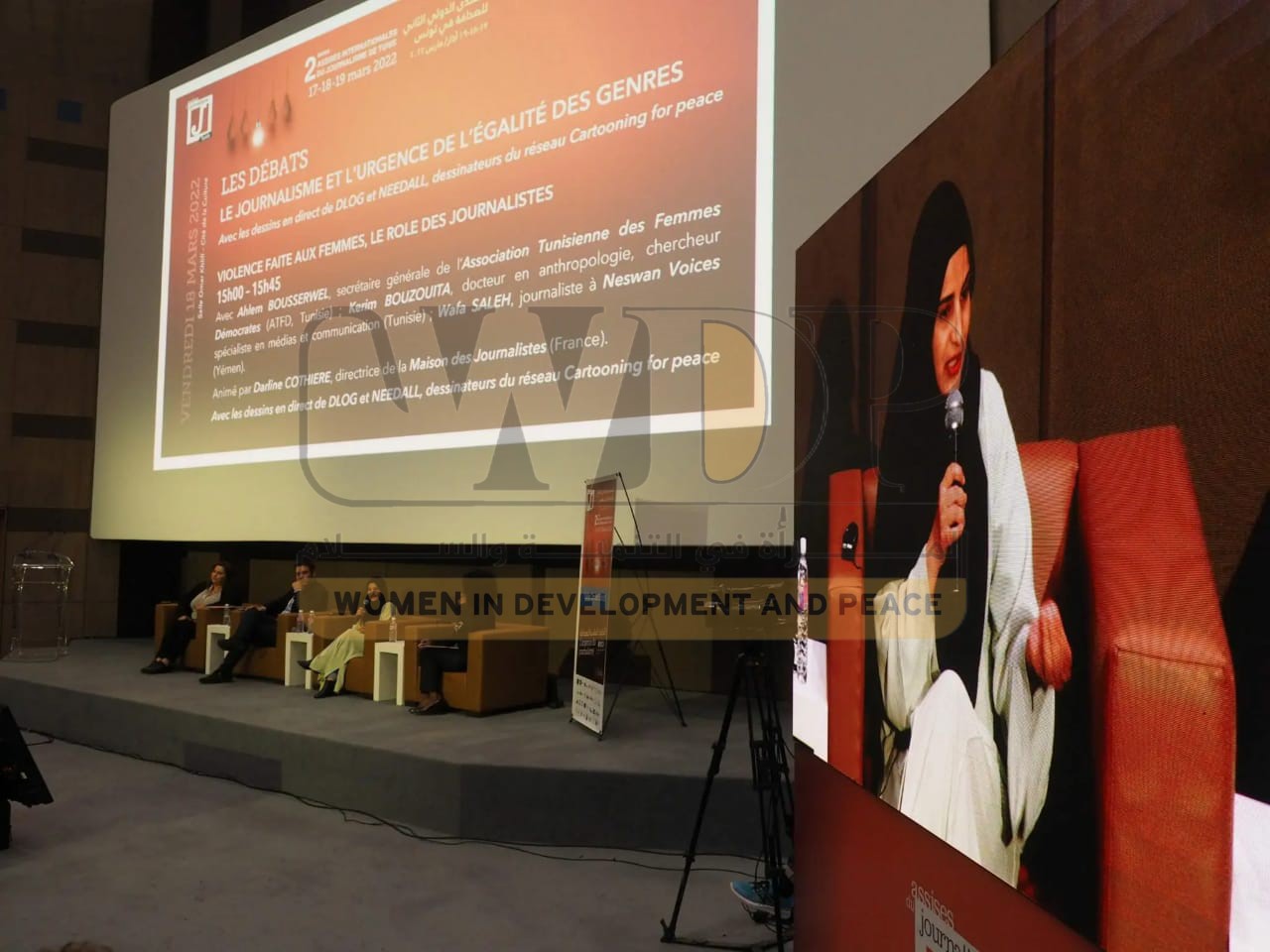Hanan Hussein – Women in Development and Peace
The success stories of Yemeni women deserve great admiration and appreciation. Despite the difficulties and challenges, they strive with determination and hard work to gain positions and places worthy of them. One such success story is that of a young woman who faced many challenges from the mountains and plains of Rayma to the skies of Tunisia, working as a researcher and media professional who played a significant role in a well-known media platform that discusses and supports women’s issues in general.
Wafa Salih, a native of Rayma Governorate, became a researcher in media and communications, earning a Master’s degree in Media. She received a scholarship to the Institute of Journalism and News Sciences in Tunisia. Thanks to her dedication, her continuous pursuit of knowledge, and her belief in the power of education to develop and improve communities, she excelled and earned second place in her class. Her thesis was titled, “The Role of Yemeni Digital Platforms in Highlighting Women’s Issues in the Alternative (Digital) Public Sphere: Yemeni Women’s Platforms as an Example.”
The First Steps
The researcher talks about her beginnings, saying, “I was the first person, among my family’s daughters and sons, to go to university and study media. No one in my family had ever experienced studying for a bachelor’s degree, and they didn’t care about educating girls. I felt that achieving my dream was very difficult, but I achieved it.”
She adds, “I dreamed of becoming a field correspondent, inspired by the correspondents of Arab news channels, especially those who covered events in Palestine and elsewhere. After graduating from high school, with encouragement from my math teacher, I told my father that I wanted to continue my studies in this field. But at the time, my father said, ‘You’ll be on TV?’ I said yes. After a few attempts, he agreed to my appearing on TV. This motivated me a lot because I didn’t expect him to agree at all, especially since my mother remained opposed to my entering the field of media.”
Wafa joined the Media College, but her journey there wasn’t easy under family restrictions. She studied and worked at the same time, but she still excelled and achieved top marks in her class. Despite this, her mother still refused to allow her to enter the media field, while her father continued to encourage her, especially after he saw her being honored by the university and heard many compliments about her academic level.
In her third year of studying for her bachelor’s degree, she participated in the college’s “Reporter of the College” competition and won second place. She then worked for Shabab Net Radio. In her fourth year, she got married but she didn’t stop, and she finished her final year. Even though she became a mother, she didn’t stop. She faced difficulties and continued to work in several media outlets.
Wafa studied for her Master’s in Media in 2018-2019 at the Media College of Sana’a University. During her studies, she created a platform for women called “Niswan (Women) Voice” on social media, which eventually got its own website. She achieved a lot of success, which, along with her fellow female students, motivated her to keep going, knowing the importance of their message.
Getting a Scholarship
Despite the ongoing conflict in Yemen, Wafa still had the desire to pursue higher education. In the difficult environment for journalists in Yemen, Wafa applied for a scholarship from the Ministry of Higher Education to study abroad. In 2020, she won a scholarship to study media in Tunisia, marking a new chapter in her educational journey in a new country.
Excited about her triumph, Wafa said, “I was so happy to get this scholarship to study in Tunisia and achieve my dream of getting a Master’s degree. Especially since I had been applying for three years to get it from the Ministry before I was finally accepted. I studied French, but I only did one course before starting the scholarship program. It was a short time.”
She added, “The curriculum in Tunisia was much tougher than Yemen. Most of the subjects were taught in another language, but I worked extra hard and kept reading and studying, trying to translate words and memorize them. I always strived to gain more knowledge and eventually overcame that obstacle.”
Challenges
Talking about the challenges she faced, she said, “I encountered some challenges, like understanding the Tunisian accent, which was new and different to me, their long school days, and having to balance my studies with my children. The Tunisian climate was also stressful because I wasn’t used to it. And let’s not forget the homesickness. On top of that, there was the financial aspect and the cost of living. Half the classes were in French, which I didn’t know well at the time. But I worked hard and overcame all these difficulties.”
Wafa overcame obstacles with knowledge and education, and she was able to excel, earning second place in her class at the Institute. She said, “Despite the difficulties, I put in all my effort to overcome them. There were many moments of despair, but I was able to succeed and achieve a high GPA and be among the top students in my class.”
Advice
Wafa says, “We often find that the number of women getting scholarships is much lower than that of men. This is probably due to several reasons, including the fact that there are more male applicants than female applicants, and they may be more distinguished. Plus, the overall situation in Yemen is difficult across various social, economic, and other areas, which has negatively impacted women, especially.”
She emphasized that with global advancements in various fields, women must have many skills, such as language skills, technological skills, and higher education. This opens up more opportunities for them to benefit themselves, their families, and society.

